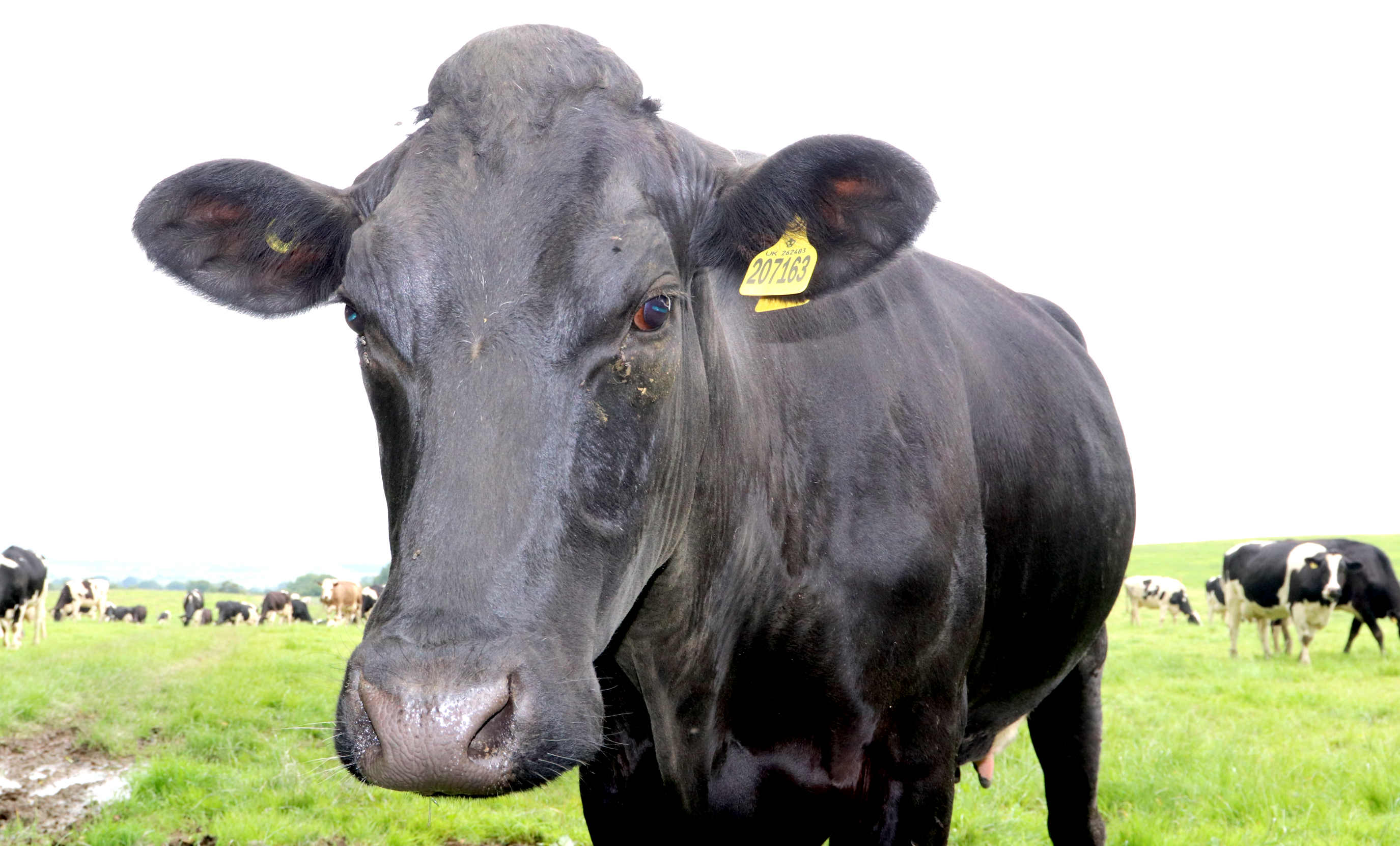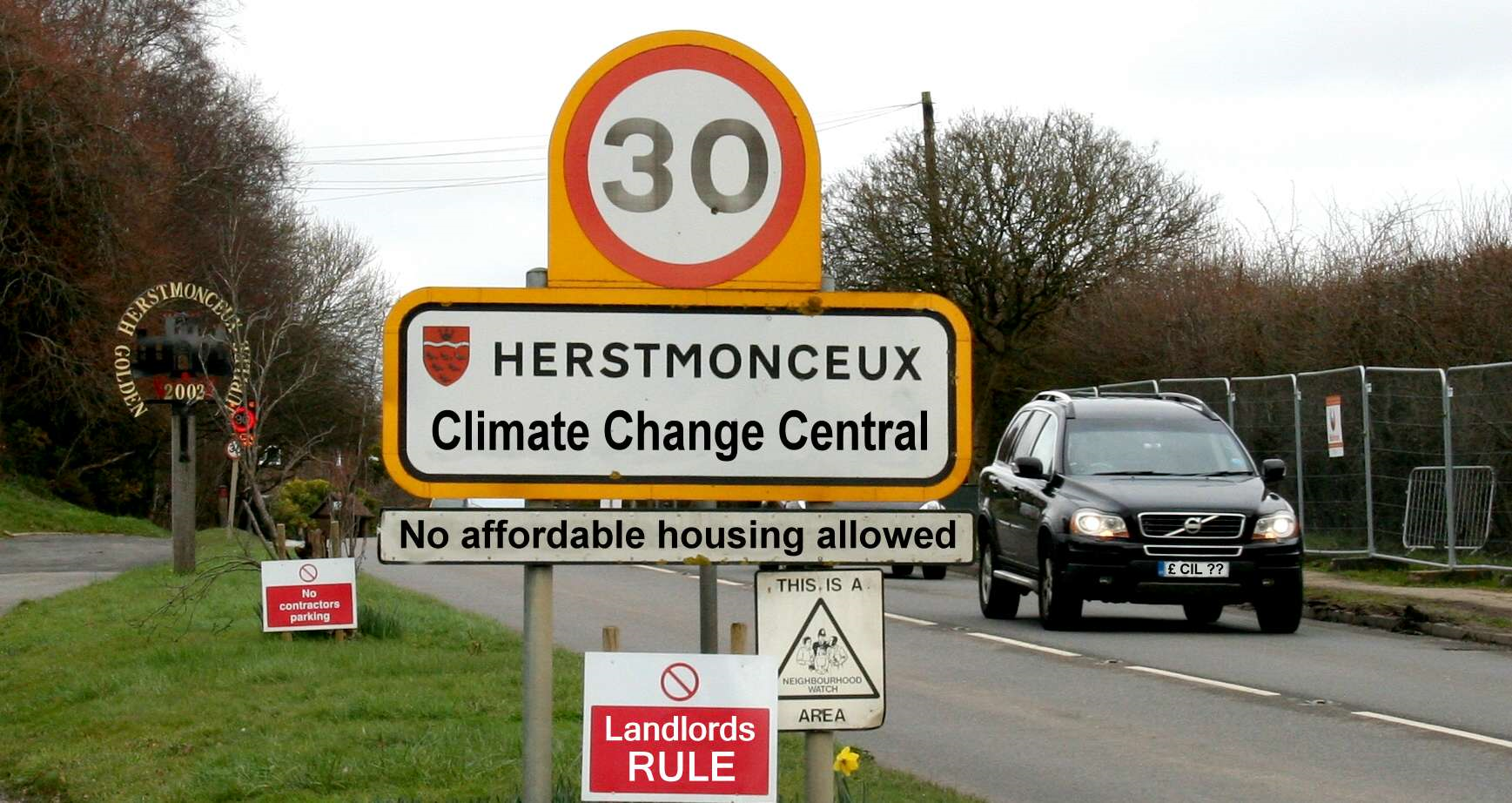|

JILL
THE DAIRY COW SAYS: - Hey,
don't you tell me when I need to do something. Do you know who you are
talking to? I am above the law sucker. You can take that awful looking electricity
generating building in the field across the way and stick it up your rear
end. See if I care about conserving our heritage. I'll do what I want,
and you can't stop me, no matter my actions may put the building at
risk. So there. But then, I'm only a cow chewing the
cud in a close by pasture. Presumably, human applicants would want to
protect evidence of their past, for future generations, no matter the
industrial landscape is less palatable to ruminants. If I ever come back in another
form, I hope I have two legs and opposable thumbs. Then we'll see. I
might get a job with the council. I hear they are in the pooh in a big
way, having been caught discriminating against some of the residents in
their area, for the benefit of others. I'd feel right at home, even if I do let a package go
occasionally. Nobody would notice with all the brown stuff hitting the
fan from all that institutionalised bullshit.
Cows don't violate Article 14, they just make milk, beef and leather
from grass. Bovines have no human rights.
The Criminal Law Act 1977
The The Criminal Law Act 1977 (c.45) is an Act of the Parliament of the United Kingdom. Most of it only applies to England and Wales. It creates the offence of conspiracy in English law. It also created offences concerned with criminal trespass in premises, made changes to sentencing, and created an offence of falsely reporting the existence of a bomb.
CRIMINAL LAW ACT 1977 - 1977 CHAPTER 45
An Act to amend the law of England and Wales with respect to criminal conspiracy; to make new provision in that law, in place of the provisions of the common law and the Statutes of Forcible Entry, for restricting the use or threat of violence for securing entry into any premises and for penalising unauthorised entry or remaining on premises in certain circumstances; otherwise to amend the criminal law, including the law with respect to the administration of criminal justice; to provide for the alteration of certain pecuniary and other limits; to amend section 9(4) of the Administration of Justice Act 1973, the
Legal Aid Act 1974, the Rabies Act 1974 and the Diseases of Animals (Northern Ireland) Order 1975 and the law about juries and coroners’ inquests; and for connected purposes.
Part I Conspiracy - 1 The offence of conspiracy
(1) Subject to the following provisions of this Part of this Act, if a person agrees with any other person or persons that a course of conduct shall be pursued which will necessarily amount to or involve the commission of any offence or offences by one or more of the parties to the agreement if the agreement is carried out in accordance with their intentions, he is guilty of conspiracy to commit the offence or offences in question.
(2) Where liability for any offence may be incurred without knowledge on the part of the person committing it of any particular fact or circumstance necessary for the commission of the offence, a person shall nevertheless not be guilty of conspiracy to commit that offence by virtue of subsection (1) above unless he and at least one other party to the agreement intend or know that that fact or circumstance shall or will exist at the time when the conduct constituting the offence is to take place.
(3) Where in pursuance of any agreement the acts in question in relation to any offence are to be done in contemplation or furtherance of a trade dispute (within the meaning of the Trade Union and Labour Relations Act 1974) that offence shall be disregarded for the purposes of subsection (1) above provided that it is a summary offence which is not punishable with imprisonment.
(4) In this Part of this Act " offence " means an offence triable in England and Wales, except that it includes murder notwithstanding that the murder in question would not be so triable if committed in accordance with the intentions of the parties to the agreement.
2 Exemptions from liability for conspiracy
(1) A person shall not by virtue of section 1 above be guilty of conspiracy to commit any offence if he is an intended victim of that offence.
(2) A person shall not by virtue of section 1 above be guilty of conspiracy to commit any offence or offences if the only other person or persons with whom he agrees are (both initially and at all times during the currency of the agreement) persons of any one or more of the following descriptions, that is to
say —
(a) his spouse;
(b) a person under the age of criminal responsibility ; and
(c) an intended victim of that offence or of each of those offences.
(3) A person is under the age of criminal responsibility for the purposes of subsection (2)(b) above so long as it is conclusively presumed, by virtue of section 50 of the Children and Young Persons Act 1933, that he cannot be guilty of any offence.
3 Penalties for conspiracy
(1) A person guilty by virtue of section 1 above of conspiracy to commit any offence or offences shall be liable on conviction on
indictment —
(a) in a case falling within subsection (2) or (3) below, to imprisonment for a term related in accordance with that subsection to the gravity of the offence or offences in question (referred to below in this section as the relevant offence or offences); and
(b) in any other case, to a fine. Paragraph (b) above shall not be taken as prejudicing the application of section 30(1) of the Powers of Criminal Courts Act 1973 (general power of court to fine offender convicted on indictment) in a case falling within subsection (2) or (3) below.
(2) Where the relevant offence or any of the relevant offences is an offence of any of the following descriptions, that is to
say —
(a) murder, or any other offence the sentence for which is fixed by law;
(b) an offence for which a sentence extending to imprisonment for life is provided ; or
(c) an indictable offence punishable with imprisonment for which no maximum term of imprisonment is provided,
the person convicted shall be liable to imprisonment for life.
(3) Where in a case other than one to which subsection (2) above applies the relevant offence or any of the relevant offences is punishable with imprisonment, the person convicted shall be liable to imprisonment for a term not exceeding the maximum term provided for that offence or (where more than one such offence is in question) for any one of those offences (taking the longer or the longest term as the limit for the purposes of this section where the terms provided differ). In the case of an offence triable either way the references above in this subsection to the maximum term provided for that offence are references to the maximum term so provided on conviction on indictment.
4 Restrictions on the institution of proceedings for conspiracy
(1) Subject to subsection (2) below proceedings under section 1 above for conspiracy to commit any offence or offences shall not be instituted against any person except by or with the consent of the Director of Public Prosecutions if the offence or (as the case may be) each of the offences in question is a summary offence.
(2) In relation to the institution of proceedings under section 1 above for conspiracy to commit—
(a) an offence which is subject to a prohibition by or under any enactment on the institution of proceedings otherwise than by, or on behalf or with the consent of, the Attorney General, or
(b) two or more offences of which at least one is subject to such a prohibition,
subsection (1) above shall have effect with the substitution of a reference to the Attorney General for the reference to the Director of Public Prosecutions.
(3) Any prohibition by or under any enactment on the institution of proceedings for any offence which is not a summary offence otherwise than by, or on behalf or with the consent of, the Director of Public Prosecutions or any other person shall apply also in relation to proceedings under section 1 above for conspiracy to commit that offence.
(4) Where —
(a) an offence has been committed in pursuance of any agreement; and
(b) proceedings may not be instituted for that offence because any time limit applicable to the institution of any such proceedings has expired,
proceedings under section 1 above for conspiracy to commit that offence shall not be instituted against any person on the basis of that agreement.
5 Abolitions, savings, transitional provisions, consequential amendment and repeals
(1) Subject to the following provisions of this section, the offence of conspiracy at common law is hereby abolished.
(2) Subsection (1) above shall not affect the offence of conspiracy at common law so far as relates to conspiracy to defraud, and section 1 above shall not apply in any case where the agreement in question amounts to a conspiracy to defraud at common law.
(3) Subsection (1) above shall not affect the offence of conspiracy at common law if and in so far as it may be committed by entering into an agreement to engage in conduct
which —
(a) tends to corrupt public morals or outrages public decency; but
(b) would not amount to or involve the commission of an offence if carried out by a single person otherwise than in pursuance of an agreement.
(4) Subsection (1) above shall not affect —
(a) any proceedings commenced before the time when this Part of this Act comes into force;
(b) any proceedings commenced after that time against a person charged with the same conspiracy as that charged in any proceedings commenced before that time; or
(c) any proceedings commenced after that time in respect of a trespass committed before that time;
but a person convicted of conspiracy to trespass in any proceedings brought by virtue of paragraph (c) above shall not in respect of that conviction be liable to imprisonment for a term exceeding six months.
(5) Sections 1 and 2 above shall apply to things done before as well as to things done after the time when this Part of this Act comes into force, but in the application of section 3 above to a case where the agreement in question was entered into before that
time —
(a) subsection (2) shall be read without the reference to murder in paragraph (a); and
(b) any murder intended under the agreement shall be treated as an offence for which a maximum term of imprisonment of ten years is provided.
(6) The rules laid down by sections 1 and 2 above shall apply for determining whether a person is guilty of an offence of conspiracy under any enactment other than section 1 above, but conduct which is an offence under any such other enactment shall not also be an offence under section 1 above.
(7) Incitement and attempt to commit the offence of conspiracy (whether the conspiracy incited or attempted would be an offence at common law or under section 1 above or any other enactment) shall cease to be offences.
(8) The fact that the person or persons who, so far as appears from the indictment on which any person has been convicted of conspiracy, were the only other parties to the agreement on which his conviction was based have been acquitted of conspiracy by reference to that agreement (whether after being tried with the person convicted or separately) shall not be a ground for quashing his conviction unless under all the circumstances of the case his conviction is inconsistent with the acquittal of the other person or persons in question.
(9) Any rule of law or practice inconsistent with the provisions of subsection (8) above is hereby abolished.
(10) In section 4 of the Offences against the Person Act 1861 —
(a) the words preceding " whosoever " shall cease to have effect; and
(b) for the words from " be kept" to " years " there shall be substituted the words
“imprisonment for life”.
(11) Section 3 of the Conspiracy and Protection of Property Act 1875 shall cease to have effect.
Access
to Neighbouring Land Act 1992 Ancient
Monuments and Archaeological Areas Act 1979 Beaumont
Vs Florala 2020 - Right to Light case precedent Criminal
Damage Act 1971 Criminal
Law Act 1977 European
Communities Act 1972 Fraud
Act 2006 Party Wall Act 1996 Planning
(Listed Buildings and Conservation Areas) Act 1990 Prescription
Act 1832 R
v Dytham 1979 QBD, Malfeasance in Public Office R
v Sussex Justices ex-parte McCarthy 1924, bias undoes conviction WHAT
IS A HERITAGE STATEMENT?
WHAT
IS A HERITAGE ASSET?

THE
ONLY
ONE LEFT - This unassuming building is believed to be the earliest
surviving example of electricity generating and load leveling on the
planet. In the world of industrial archaeology, this is a gem. All the
more intriguing for being nestled out of the way in the country. Notably
not understood for it's importance by local politicians and even some
immediate neighbors. Some of which had in the past wanted
to purchase it, simply to knock it down. Sadly, with the local authority
aiding and abetting such ambition. We hope those days are gone for good.
But the fact remains, that the building still has no reasonable or
beneficial use. Despite a Court Order from 2003/4, where Wealden DC
agreed to rectify that malady. Progress was made up to 2008, then all
cooperation ceased. It has been 14 years, and once again we are waiting
for answers to correspondence, as to what the council intend doing to
remedy their maladministration.
The
heritage asset above in included on Step 4 of a Monument Protection
Programme focusing on the electrical generating industry, and how it
began. There are two recent planning applications affecting this
building. One was a Major development for up to 70 houses in the
adjacent field. The other was from within Lime Park, from the new owners
of The Rectory, in 2022, Ms
Finn and Mr
Flood. Yet, it
seems (it is alleged) that no Heritage Statement accompanied their
application: WD/2022/0497/F, and no Notice as to the Party Wall Act was
given concerning the Generating Buildings. We await clarification from
the applicants. The previous owners of the Rectory were Peter
and June Townley.
REFERENCE
https://www.

2022 -
Herstmonceux in Sussex is not what it used to be. Villagers are being
forced to rent in towns, rather than being able to live where they were
brought up - at reasonable prices. In modern England, councils are
operated against the interests of young families. Rents for new builds
in Herstmonceux are exorbitant. There are no genuinely affordable
houses. Wealden only grant consent for executive housing in major
development. Wealden provide no rolling stock of land for sustainable
and affordable
(self builds) flat packs, etc. The rich get richer and the poor,
poorer. This seems to be the Conservative way, with Labour failing to
change statute, when they finally get voted in. Political wrangling like
this is unproductive and climate unfriendly, as is financial slavery:
living off the backs of others.
Please use our
A-Z INDEX to
navigate this site
|

